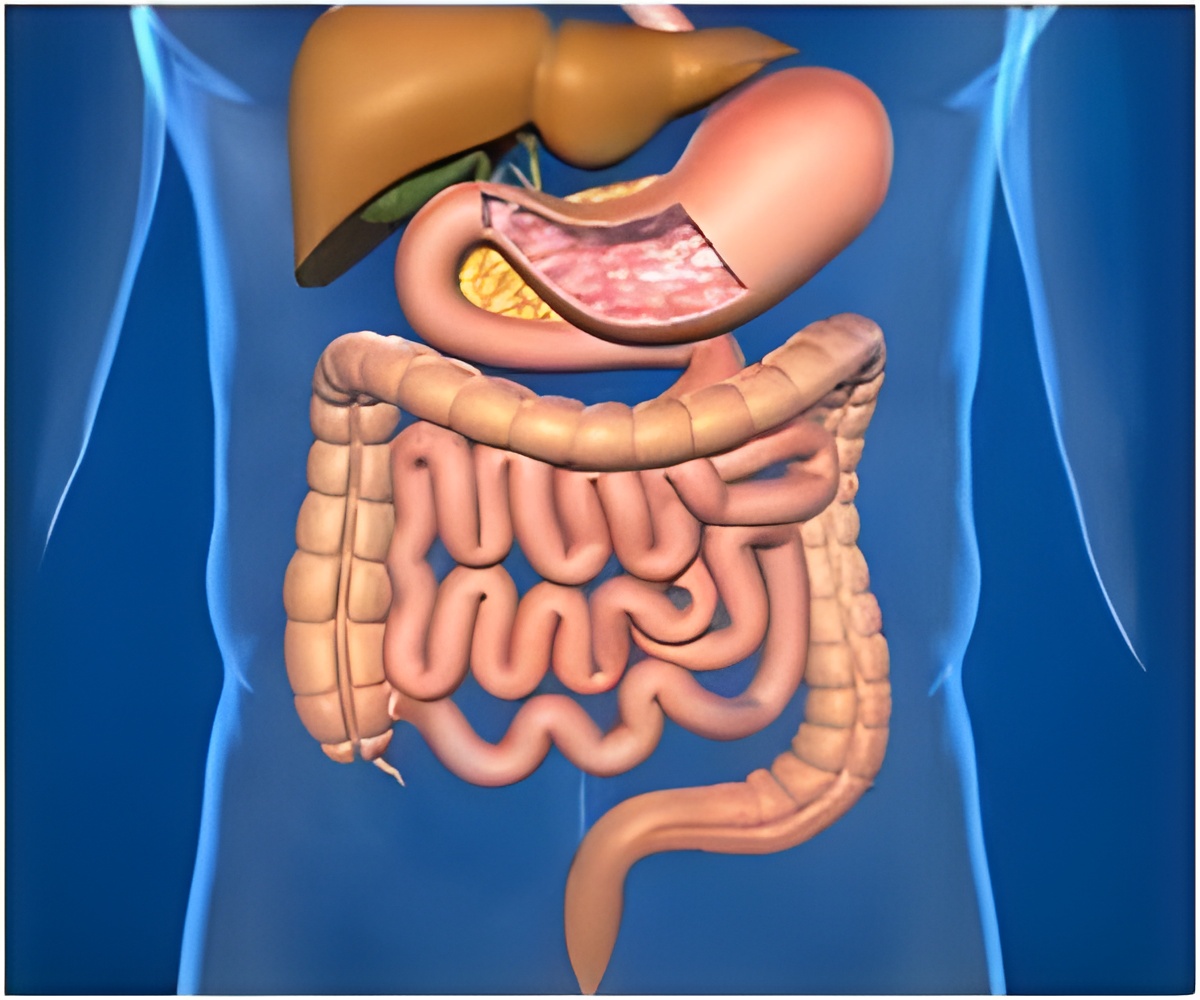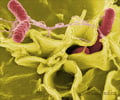Immune system defenses against dangerous bacteria in the gut can be breached by turning off a single molecular switch that protective mucus lining our intestinal walls.

The walls of the intestine are shielded from potentially harmful bacteria by a thin mucus lining, which has been described as the body's demilitarized zone. The researchers found that production of this mucus lining depends upon a single immune system regulator — the NLRP6 inflammasome — that controls mucus secretion by cells in the wall of the intestine, just like turning on a faucet.
In mice lacking the inflammasome, the faucet is closed, there is no mucus shield, and the mice are unable to fend off invaders. As a result, the intestinal wall becomes infected and inflamed, leaving the mice susceptible to conditions as diverse as inflammatory bowel diseases, colon cancer, Type 2 diabetes, obesity, and fatty liver disease. All these conditions stemmed from the bacterial invasion of the intestinal wall.
"The next step is to identify the bacteria in humans, prove that the system works the same way it does in mice, and figure out how to dial up the protective shield," Flavell said.
Source-Eurekalert















